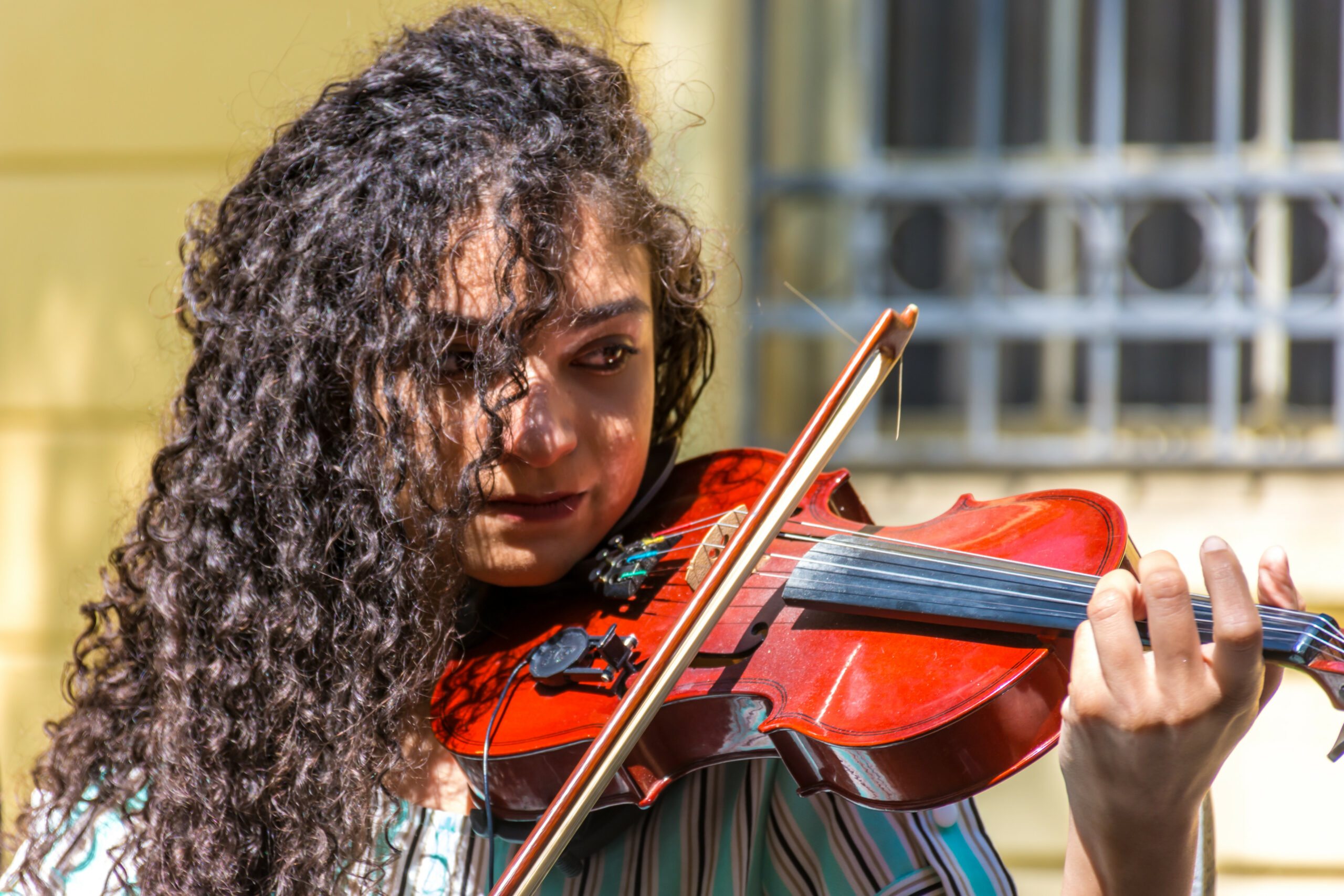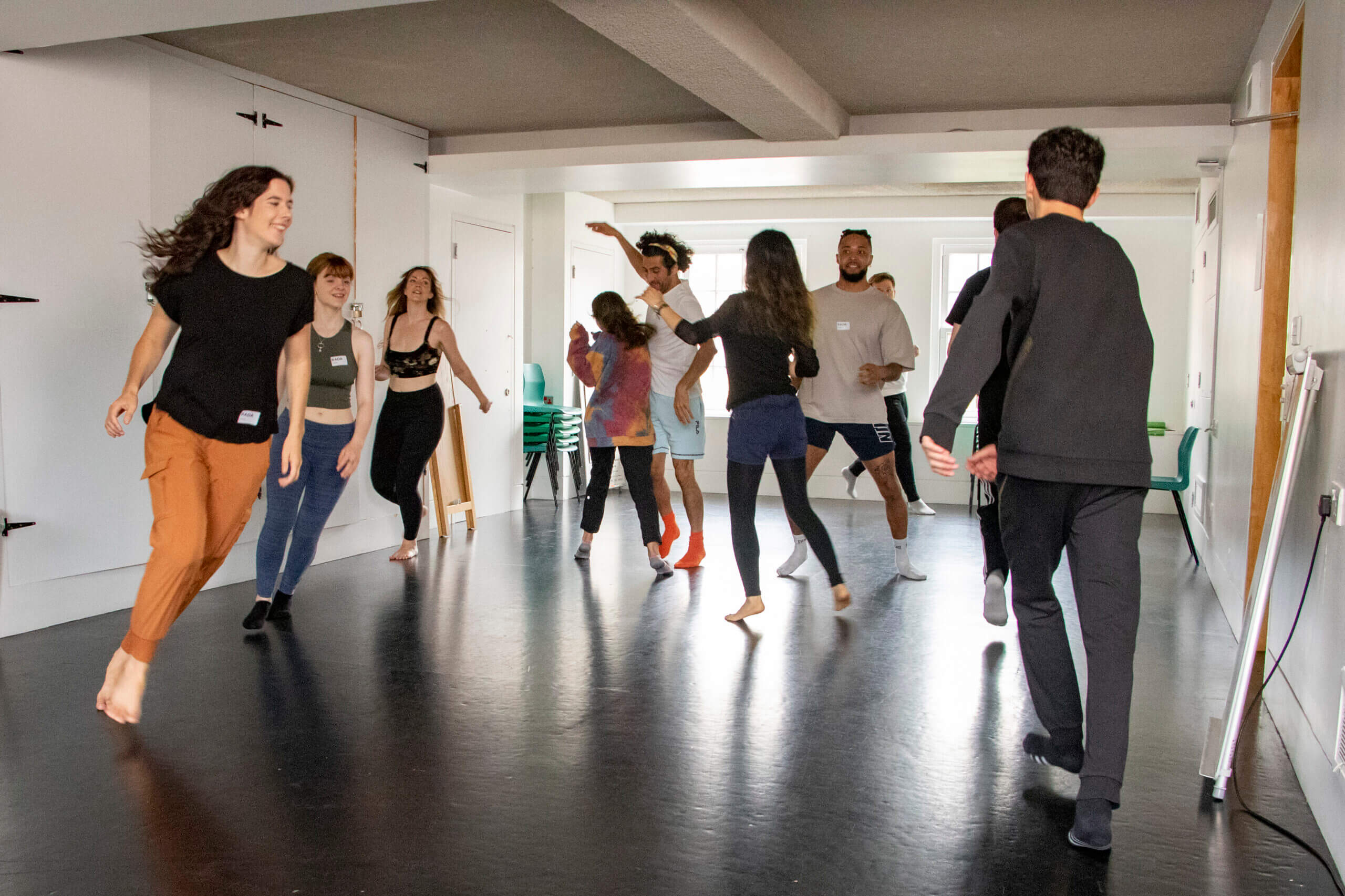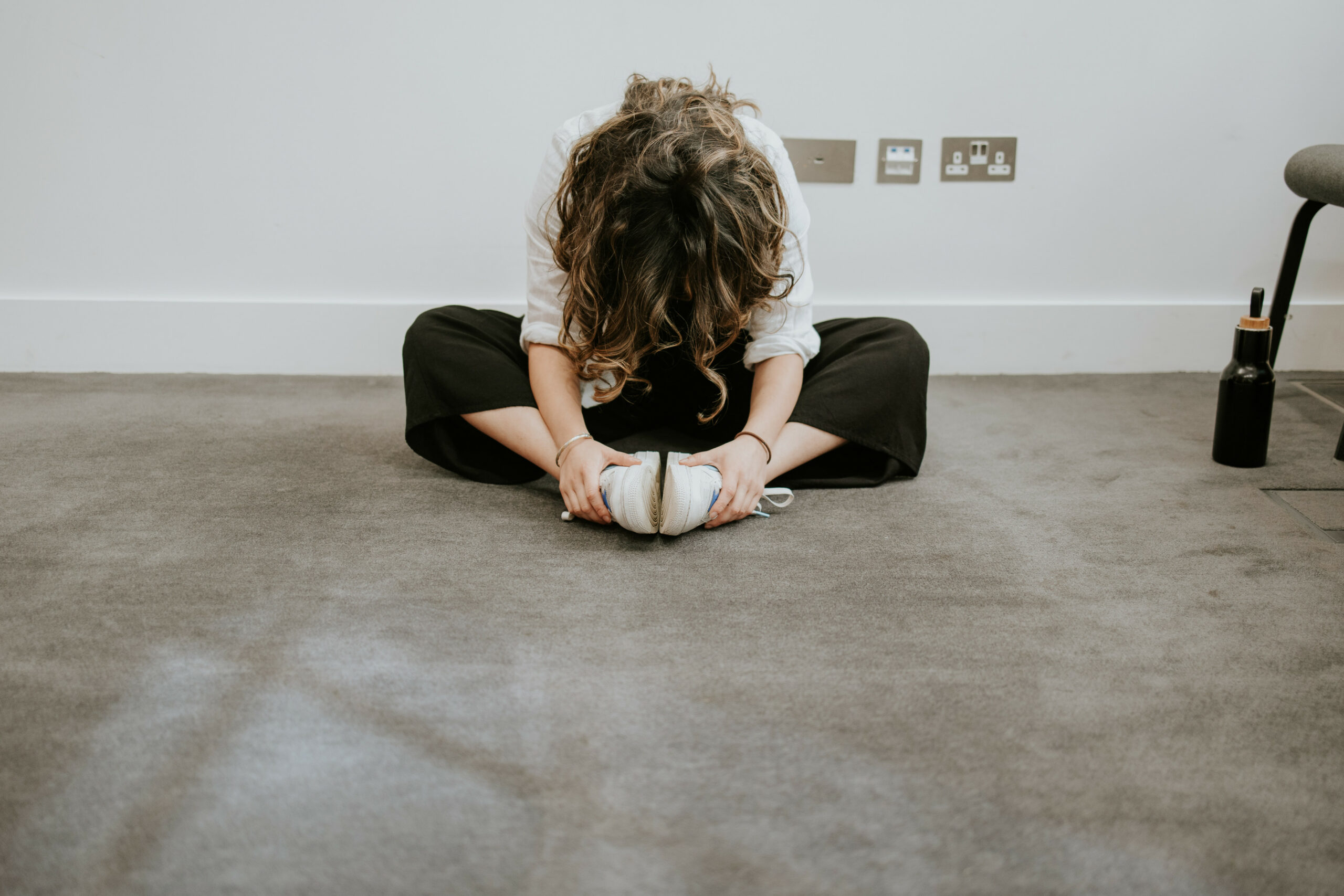It takes time and dedication but playing an instrument can help boost your career opportunities. Michaela Bennison shares her advice if you want to become an actor-musician.
Playing an instrument can not only open up a range of job opportunities but can also be an enriching journey in itself.
In the last few years, both fringe shows and large scale productions have made use of the actor-musician: actors who can play a musical instrument. This skill has become highly sought after by producers working to ever-tighter budgets and has given rise to the quadruple threat performer who can act, sing, dance and play.
As well as being a considerable financial investment, learning an instrument takes discipline and dedication. But the potential rewards are great, adding an additional skill to your acting CV and opening up opportunities in the musical side of the industry.
So, how do you become an actor-musician?
At this stage in your acting career, you’ll most likely fall into one of two broad categories: you already know how to play an instrument or you don’t. Depending on which category you’re in, you’ll have different choices to make on your actor-musicianship journey.
Continuing Your Current Instrument
If you can play an instrument, you have a head start. You might already be good enough to put your instrument on your acting CV. But if you’re struggling to decide whether that’s the right choice for you, here are some tips.
1. If you currently play an instrument and enjoy it, keep going!
This is the easiest scenario. If you enjoy your instrument enough to self-motivate your practice, it makes sense to keep it up. Don’t assume that your instrument isn’t useful. Any instrument is an asset, and some productions work their musical arrangements around what the cast can play.
If you’re serious about making actor-musicianship a core part of your career, there are dedicated courses you can apply for. If not, make time to regularly fit instrument practice around your studies to maintain your skill level.
2. Consider other instruments within the same family.
If you play your instrument to a high standard, learning other instruments within the same family can be useful. For example learning Tenor Saxophone if you already play Alto, or the accordion (a useful instrument for actor-musician shows) if you’re a pianist.
Adding extra instruments gives you flexibility not only as an actor but also for any musician work you may want to explore alongside.
3. If you don’t enjoy your instrument, consider keeping it up for the time being.
Keeping an instrument going is easier than learning something new, so it’s worth trying to rekindle your enthusiasm for it. See if you can find a new repertoire that excites you or try changing teachers if you’re currently having lessons.
If you absolutely hate your instrument, don’t worry! You can always learn a new one from scratch. It’s better to find something that you enjoy and want to play.
Choosing a New Instrument
If you’re choosing your first instrument, or want to learn a completely new one, deciding what to play can be overwhelming. So, here are some things to consider to help narrow down your search.
1. Is there an instrument that excites or inspires you?
Whether it’s watching Lisa Simpson play the sax or listening to Jimi Hendrix play the guitar, if there’s an instrument you’ve always been interested in playing, it’s a good place to start. Find a shop that sells that instrument and ask to try it out.
2. Is there an instrument you enjoy playing?
How do you know what you enjoy playing? By going into a music shop and trying their instruments. The staff will be happy to help you and give you advice. Try as many instruments as you need to find the right one for you.
If your local music shop doesn’t stock the instrument you’re interested in, they can help you find one that does.
3. What’s your budget?
Musical instruments are an investment, so it’s important to know how much you can afford to spend.
Fretted instruments such as guitars and ukuleles are very popular, and so you’re likely to find cheap beginner instruments online or in charity shops. Larger classical instruments are generally more expensive. However, many shops will offer a payment plan or give you the option of loaning the instrument for a regular fee. Buying an instrument second-hand can also reduce costs.
If you can’t afford your instrument, there are charities that can help. Orchestras for All gives donated instruments to schools to loan to their students, whilst Music for All, Sistema England and Charity Music all run programs to provide instruments for people from disadvantaged backgrounds.
4. How practical is the instrument for theatrical use?
This is an important consideration if you’re learning an instrument as an actor. Usually an actor-musician show will always need accompaniment instruments, traditionally from the guitar and keyboard families.
Another thing to consider is how mobile you can be whilst playing. A production team can make more use of you as an actor if you aren’t confined to one area of the stage by your instrument.
Keeping these two things in mind can help narrow down your choices if you’re struggling to decide on an instrument.
Like any skill, learning an instrument isn’t for everyone. And if that’s the case for you, there are plenty of other skills that can boost your prospects as an actor, from stage combat to puppetry. However, playing an instrument can not only open up a range of job opportunities but can also be an enriching journey in itself.
So, if you already play take advantage of your broader skill set and keep going. And if you’ve always wanted to learn, give it a try and who knows? It may give birth to a second, lifelong passion.
 Michaela Bennison is an actor and writer, whose credits include ‘Into The Woods’ at The Royal Exchange, Manchester and ‘Lady of Jazz’ at Hope Mill Theatre, Manchester and Wilton’s Music Hall.
Michaela Bennison is an actor and writer, whose credits include ‘Into The Woods’ at The Royal Exchange, Manchester and ‘Lady of Jazz’ at Hope Mill Theatre, Manchester and Wilton’s Music Hall.
Michaela runs a blog and YouTube channel, where she shares her thoughts about the theatre industry and offers advice to actors based on her experiences.
Headshot by Robin Savage.
Main image by Luciano Marques.












